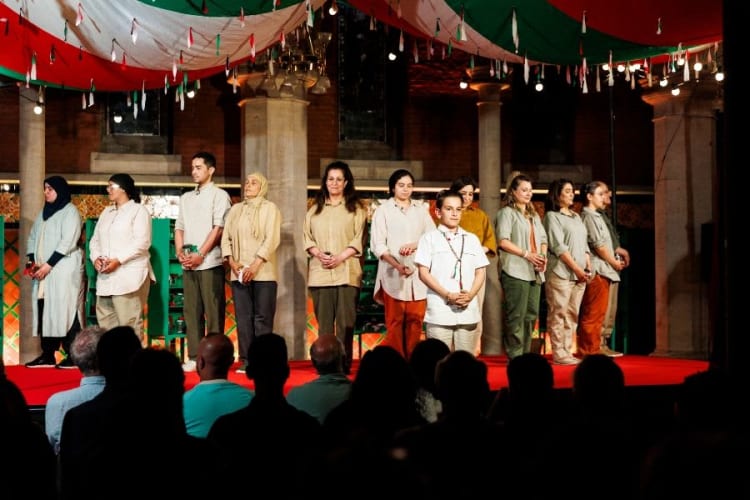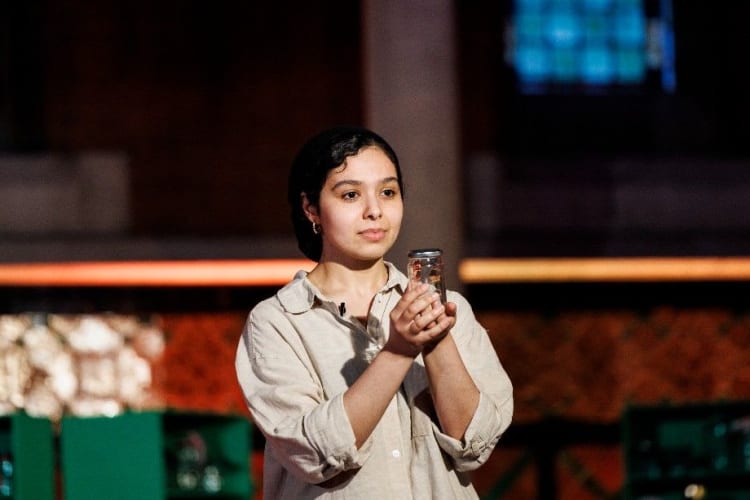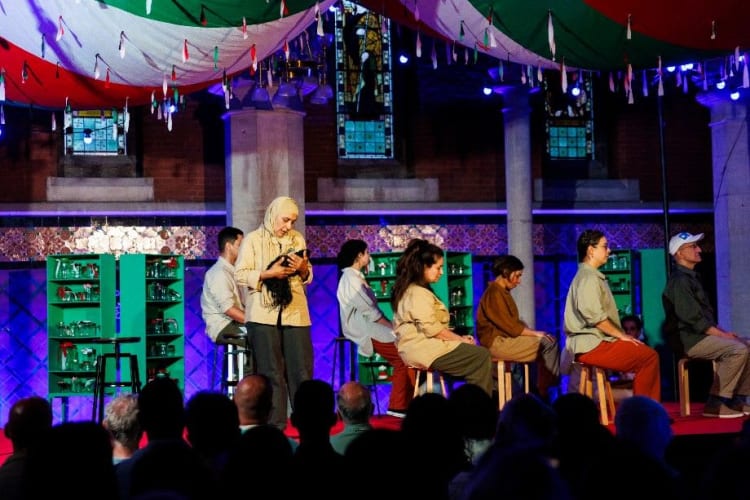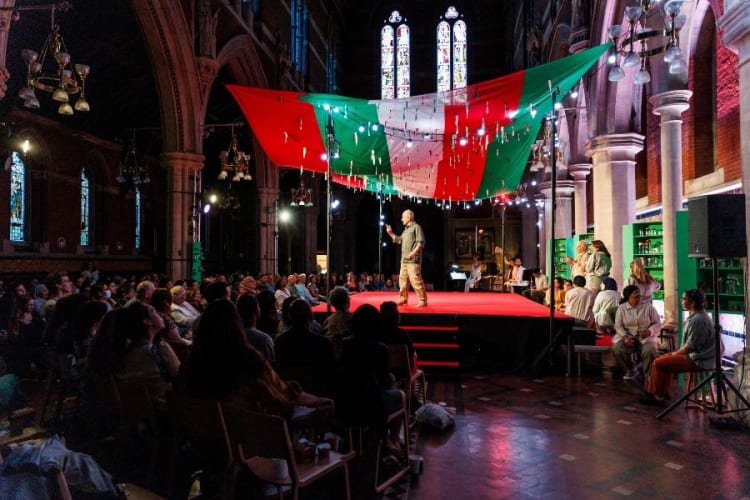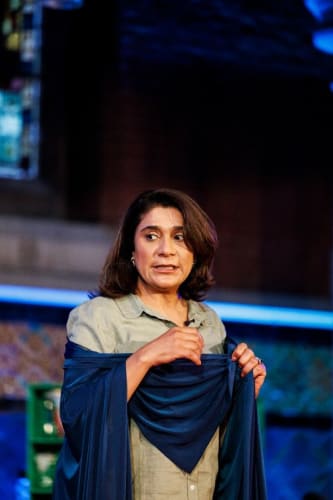There’s a warm, welcoming atmosphere at the St Mary Magdalene Church, home of the community organisation Grand Junction, which is mounting a production of Olive Jar as part of its Elixir Festival.
In the centre of the spectacular church is a thrust platform covered in a red carpet. Above it hangs a cloth in the colours of red, green and white, reminding many of us of the Palestinian flags we carry to marches.
At the back of the stage are eight brightly lit green cabinets containing glass jars. Behind them, the green and red colours continue in a way that seems at one with the warm colours of the various church pictures.
Twelve-year-old Ali Hashim steps forward as the guardian of the jars and the host for members of the local community who will tell us something about their individual history. Each will conclude their story by placing an olive jar in a container at the front and centre of the stage.
We drink pleasant mint tea with Mariam Addada, who, with friendly humour, tells us of her grandfather’s departure from Algeria under French occupation and the slightly different accounts given by her grandfather and grandmother.
This gentle opening is followed by more troubling stories from two Palestinian women. Hafiza Ibrahim describes her wealthy grandmother as being twice widowed. Her son is locked away in prison for seven years and, in his absence, in 1948, she is driven out of Palestine by colonial Israeli settlers.
A second Palestinian, Majida Jawhar, tells us that when she became pregnant while living precariously in Lebanon, she decided to fly to the USA so that her child would by birth be entitled to US citizenship. Unfortunately, she gives birth on the plane.
A more accidental escape from Lebanon, his country of origin, is recalled by Adam Farhat, whose epic tale is told in parts between the stories of the other performers. Having a bit of holiday leave from his job in Saudi Arabia at a time when Israel’s invasion of Lebanon made it difficult to return to his own country, he goes instead to Aman, only to find it so boring he heads to London.
Later instalments of his story include him being in an accommodation overlooking Hyde Park when an IRA bomb explodes. He says that makes it feel just like home. To make matters worse, when his property is stolen, he is forced to live on the streets.
The show next takes us to the wedding in 1990 of Syrian bride Nasrin (played on this occasion by Mariam Addada) to a Kuwaiti man. Under our seats are containers of olives for us to share as her story unfolds. The Iraq attack on Kuwait deprives her husband of a job, but that is just the beginning of their problems as a war follows.
A more hopeful story comes from Sarah Joy Dawoud, the daughter of an English mother and Syrian father. As she cooks her grandmother’s recipe for a dolma in her kitchen, she recalls her relatives. It is a joyful moment, allowing her to connect with family. She invites us to join her in a meal by opening the box beneath our seats. Although I’m a vegetarian and had no idea what a dolma was, I joined in and found it incredibly tasty.
The troubled recent history of Iraq and Syria still deeply affects three of our group. Ali finds the trauma so raw, he is unable to tell his story. Phayaphi Alkhayoon is still haunted by the murder of many members of her family by Saddam Hussain’s regime, and Lana Alchami describes exiting Iraq in the wake of the 2003 US-led invasion that devastated the country.
During many parts of the performance, the gentle music of the singer Ruba Shamshoum, harpist Georgie Pope and percussionist Nuno Brotiof plays in the background. It was composed by Ruba, who was born in Nazareth and, during the play also takes the role of translator for Lina Alchami, a Syrian woman who for three years didn’t leave her English home or learn English till, when her husband became ill, a Moroccan friend suggested she learnt English. She admits that doing exactly that gave her an unexpected new freedom.
The show concluded with us being encouraged to tell our own stories to each other, and many of the audience sat chatting long after this well-performed, superbly entertaining event had ended. Every community should have its Grand Junction to help give witness to the amazing lives of the people we live alongside.
